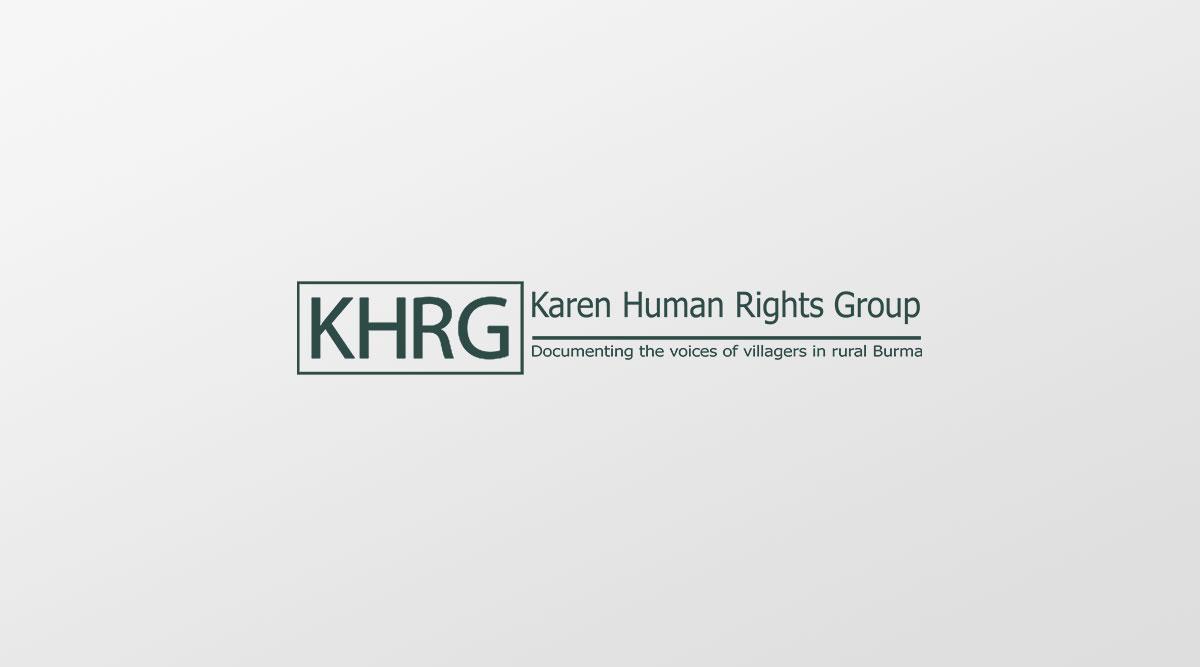On this International Day for Mine Awareness and Assistance in Mine Action, the Karen Human Rights Group (KHRG) stresses the continued illegal use of landmines and explosive ordnances by armed actors in Southeast Burma, and their profound impact on local communities. Widespread landmine contamination by armed groups, particularly Burma Army troops under the State Administration Council (SAC), poses a serious threat to villagers and their livelihoods. Today, KHRG calls on all stakeholders to acknowledge the deteriorating human rights situation in locally-defined Karen State, and to take decisive action to end the abuses perpetrated against civilians, including by protecting them from the threat of landmines and other explosive ordnances.
Since the 2021 coup, and the subsequent escalation of armed conflict, there has been an increase in the use of landmines by both the SAC and armed resistance forces in Southeast Burma for defensive and offensive purposes. The widespread usage of landmines in Karen State is not new, and hence there is now a combined danger of old and new landmines. From February 2021 to November 2023, KHRG documented the deaths of at least 21 villagers and injuries to 60 villagers, including children, caused by landmine explosions in Southeast Burma. Most victims were engaged in essential livelihood activities when the incidents occurred. The survivors and their families face many challenges, including coping with their physical injuries, the psychological impact of the traumatic event, high medical costs, and livelihood challenges due to inability to work or the loss of livestock as a result of explosions. Displaced villagers also face safety concerns about returning to their villages, to relocate or to carry out other essential daily activities, as Burma Army soldiers sometimes lay landmines around villagers' homes and other important buildings such as schools, clinics and churches.
The unexploded bombs and mortar shells from SAC air strikes and indiscriminate shelling cause an added major security risk for villagers. Unexploded ordnances (UXOs) may remain activated for a long time, and may move from their original location through, for example, landslides and floods. In addition, children are often more vulnerable to explosive remnants of war present in or near their community, unaware of what the artefact is. For instance, on January 26th 2023, two children found an unexploded mortar round in Thar Yar Kon village, Maung Ma village tract, Kaw T’Ree Township, Dooplaya District. At first, these two children thought that the shell remained from an air strike bomb, so they took it to the village. One of the children put the mortar into his pocket and showed it to a villager. When an aunt saw the children holding a mortar, she shouted loudly: “Where did you get it?” The child was startled, and the mortar fell and exploded. Both children were blown to the ground, and their bodies were covered with injuries. One died shortly after.[1]
Landmines are inherently indiscriminate weapons that kill or maim hundreds of civilians, especially children. Mines also constrain economic development and reconstruction, prevent the return of refugees and internally displaced persons, and have other severe consequences for years after they are laid. Their use therefore violates the principle of distinction between civilians and combatants, a fundamental pillar of international humanitarian law. According to KHRG documentation, SAC soldiers plant landmines in and near villages such as farms and on roads used daily by the local population and rarely share information regarding the presence and location of the mines. In some incidents reported, the Burma Army purposely planted landmines inside villages and medical clinics.[2] This demonstrates the SAC’s clear intent and deliberate targeting of civilian. The ongoing armed conflict in the country and the risk of widespread landmine contamination violate many of civilians’ fundamental rights, including the right to freedom of movement, the right to livelihood and the rights to security and safety.
While we appreciate and recognise the efforts made by local civil society organisations and non-governmental organisations to provide mine risk awareness and assistance to victims, we believe that more can be done to protect villagers and deter the use of landmines and explosive ordnances. On this April 4th 2024, KHRG condemns the use of such indiscriminate weapons: ending the use of landmines is essential to ensure the safety and survival of civilians. Therefore, KHRG urges:
- all armed actors to refrain from planting new landmines in civilian areas and to clearly mark existing landmine areas with signs and properly inform villagers of their location;
- local actors to continue and expand the clearance and removal of landmines, UXOs, and all other explosive remnants of war using safe procedures;
- humanitarian actors to work with local service providers to establish and implement appropriate and effective long-term assistance services for victims and their families;
- the international community to support local organisations in strengthening Mine Risk Education (MREs) programmes in rural Southeast Burma, with a particular focus on the risks to children;
- all relevant regional and international stakeholders to take immediate action to bring to justice in international courts and tribunals the military leaders in Burma, who have ordered and/or permitted the targeting of civilians.
Media contacts:
Saw Nanda Hsue, KHRG Advocacy Coordinator: hsue@khrg.org
Naw Pah Lah, KHRG Advocacy Officer: nawpawlah@khrg.org


